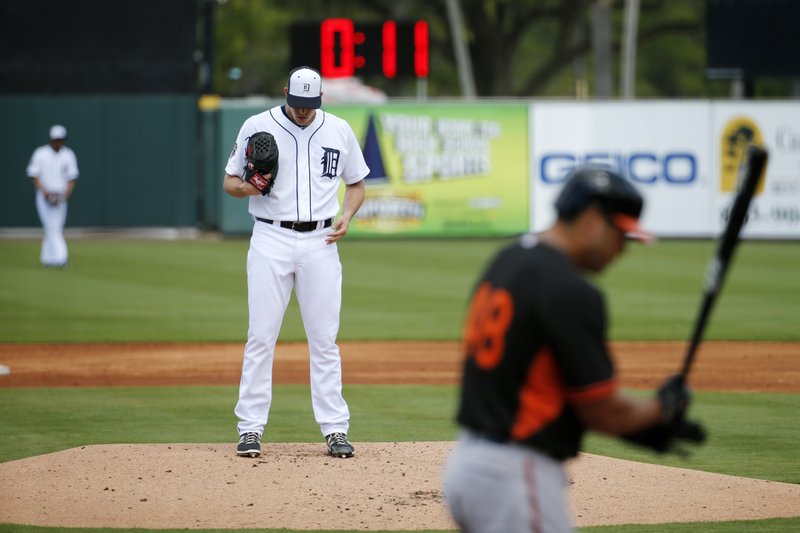NEW YORK -- Pittsburgh Pirates reliever Rob Scahill thinks his mound mates will do just fine at beating the new 20-second pitch clock that will be used at Class AAA and Class AA this season, one that could lead to balls and strikes as penalties.
"I think it's going to affect the hitters more than the pitchers," he said Tuesday in Bradenton, Fla., after the new minor league rules were announced. "They're the ones with all the routines: Step out of the box, adjust the batting gloves, look for the sign from the third base coach, take a few practice swings.
"Me, I just want to get the ball and throw it. Work fast," added Scahill, who split last season between the Colorado Rockies and Class AAA Colorado Springs. "That clock wouldn't bother me. There would be times when I'd be ready before the clock counted down."
In an effort to speed games, Minor League Baseball's governing body said a ball will be called in the count starting May 1 when a pitcher fails to start his windup or reach the set position within 20 seconds after having possession of the ball on the mound.
The clock will be reset when with runners on base a pitcher feints a pickoff or steps off the rubber, or after any action that allows a hitter to leave the batter's box. Depending on the situation, the hitter must be in the batter's box or within the dirt circle surrounding the plate when the countdown begins.
"It definitely is a little weird, especially for guys who take more time," said New York Mets left-hander Jack Leathersich, who split last season between Class AA and Class AAA. "Everybody pitches differently. There's no right way to do it. I think it's good for the game to speed it up a little bit."
The speed-up rules are more radical than those instituted in the major leagues for 2015, where union approval was needed. Minor league violators in April will be subject to warnings only, the same as in the major leagues.
"It's an experiment," major league umpire crew chief John Hirschbeck said. "Doing it in the minors that way, you can test it. They'll collect all the data and see how it worked out."
Both the major leagues and minors will have clocks timing pitching changes and between-inning breaks: 2 minutes, 25 seconds for most games and 2:45 for big league games on national television.
In the high minors, a ball would be called if a pitcher doesn't start his windup or come to a set during the last 20 seconds.
Clocks are being installed at 60 ballparks at the minors' top two levels, paid for by Major League Baseball Advanced Media, the interactive branch of MLB. Each stadium will have two clocks behind home plate and one in the outfield.
The major leagues also plan to enforce the rule used in the minors that requires a hitter to keep at least one foot in the batter's box in many instances. Penalties in the major leagues are limited to warnings and fines.
In the high minors this year, a hitter must be in the batter's box and "alert to the pitch" with five or more seconds left on the 20-second clock. A first infraction during a game would result in a warning and a subsequent violation in a strike being called against the batter.
"Players are creatures of habit," major league umpire crew chief Tim Welke said. "This will give those players time to get used to it and make any adjustments they need."
Sports on 03/25/2015
